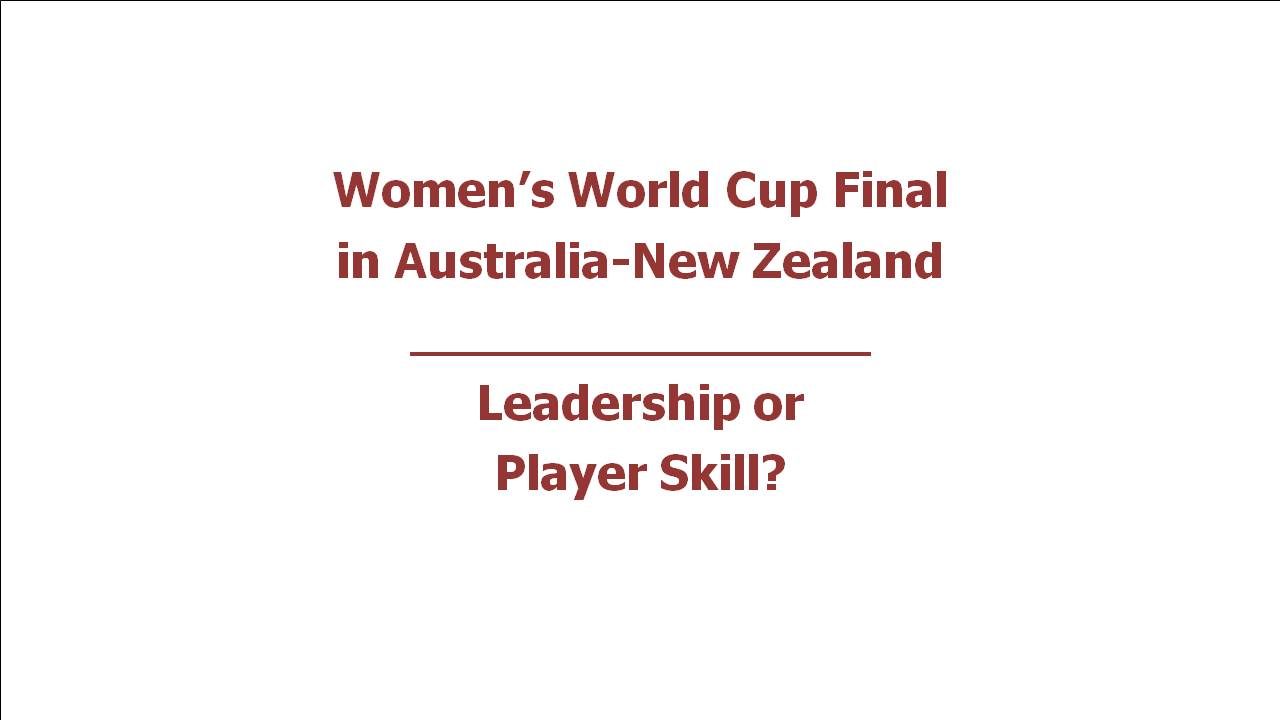by Peter A. Arthur-Smith
“If you’re not making mistakes, then you’re not doing anything.” John Wooden, UCLA basketball coach – won 10 national championships.

Spain and England were the finalists. Their contrast in approach and leadership couldn’t have been more different. The English team was coached by Sarina Wiegman, a popular, very successful Dutch woman soccer/football coach. The Spaniards were coached by Jorge Vilda, a male, national coach who had been the subject of a 15 Spanish team member petition for his removal – to the Spanish Football Association – due to affecting their mental health.
As we all know, the Spanish team won by the slim margin of 1-0. A well placed goal that edged off the finger tips of an outstretched English goalie. Spain ultimately deserved to win owing to its supreme passing skills and the greater agility of its players in the goal scoring area. Those superior passing skills came about by Vilda demanding that team members spend hours passing to each other in narrow corridors. It’s also possible that he likely motivated them before the final by declaring: “If you win, you’ll get rid of me!”
The English players had some bad luck in their goal scoring attempts, as a certain amount of luck always plays-out in such crucial games; especially a scoring attempt that hit the Spanish goal crossbar. An inch lower and it would’ve gone into the net, since it was above the Spanish goalie’s considerable reach. The English team’s morale and stamina was obviously very high, because they kept thwarting their Spanish counterparts’ skillful forwards until the end; despite the Spaniards’ superior passing skills. The English women kept disrupting the Spaniards’ talented play.
Unfortunately, the big, strong and motivated English forwards did not have the same Spanish agility when it counted the most in front of the goal-mouth. It should be noted that the English team was drawn from a rather limited pool of national players. However, the Lionesses may be better positioned in the future, since the current team’s verve has inspired thousands more girls and young women to come forward and participate in the game going forward. (NOTE: It is speculated that any English coach will then find, within a larger pool size, those rare, naturally nimble players that can score goals in tight spots.)
So we’re left with the likely decision dilemma: Is it coaching leadership or player skill which is the deciding factor with high stake’s wins? If it’s the former, then someone like Wiegman, a highly respected and popular coach, may produce a stronger team in the long-run. If it’s the latter that provides the edge, then Vilda’s short-term ruthlessness with a talented team is likely a good example – despite the coaching misfit. With such a close game, which could have gone either way, we leave you to make the call.
It wouldn’t surprise this author, if the USA Women’s Soccer Team Association doesn’t make an end-run to hire Wiegman, particularly in light of a strong US Women’s First movement. In fact, a male US commentator even floated the idea at the end of the World Cup Final. Wiegman had reportedly pledged to stay with the English team before the Cup Final. Time will tell!
